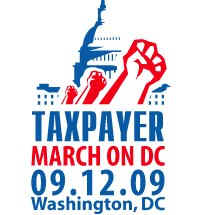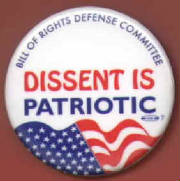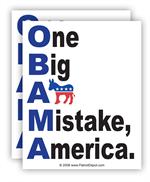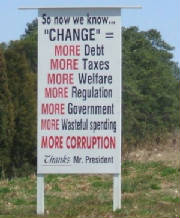|
The Evolution of American Civil Liberties
A Short HistoryBy Tom Head, About.com GuideThe civil liberties we have today weren't created; they evolved. Inch by inch, technicality by technicality,
the British system of law that once allowed for the absolute rule of the monarch gradually became a system that respected
Parliament and, when it was transplanted to the United States, eliminated the monarchy from the equation entirely. The Bill
of Rights, once an unenforceable series of promises, has become the centerpiece of our criminal justice system. Here's how
it happened. 1215: The Power of the Monarchy is ReducedThe Magna Carta restricts the absolute
power of British monarchs, holding them accountable to the rule of law.
1689: The Rights of English Subjects
Are DefinedThe English Bill of Rights guarantees free speech to members of Parliament, bans cruel and unusual
punishment, and supports a limited right to bear arms. 1776: The Power of the Monarchy is RejectedIn the U.S. Declaration of Independence from Britain, Thomas Jefferson argues that the sole legitimate purpose of government
is to protect individual rights. 1787: A New Democratic System is EstablishedThe new U.S.
Constitution establishes limited roles for the President and Congress, but does not yet grant significant power to the Supreme
Court.
1789: The Rights of U.S. Citizens Are DefinedThe U.S. Bill of Rights protects the
natural rights of U.S. citizens from infringement by U.S. Congress, but because the Supreme Court has no power to strike down
legislation, it is in effect little more than a statement of principles. At this point in history it applies exclusively to
the U.S. government--and not to U.S. states, which have their own, separate bills of rights. 1803: A Mechanism
for Protecting Rights is CreatedIn Marbury v. Madison, the Supreme Court strikes down its first law and in
so doing establishes its power to strike down unconstitutional legislation. 1868: The Rights of U.S. Citizens
Are More Clearly DefinedThe Fourteenth Amendment is ratified. Although its original purpose is to limit the
efforts of Southern states to severely restrict the rights of recently freed slaves, it effectively makes individual states
accountable to the human rights standards established in the Bill of Rights--though it will be more than a half century before
the Supreme Court comes to that conclusion.
1925: State Legislatures Must Respect the Rights of U.S. CitizensIn Gitlow v. New York, the Supreme Court holds that states are bound by the U.S. Bill of Rights by way of the Fourteenth
Amendment. The means by which the Fourteenth Amendment extends the power of the Bill of Rights is most commonly referred to
as the incorporation doctrine.
1965: The Right to Be Left Alone is DefinedIn Griswold v.
Connecticut, the Supreme Court holds that the Fourth, Ninth, and Fourteenth Amendments to the U.S. Constitution imply a right
to privacy. This right to privacy will later be cited in court rulings legalizing abortion (Roe v. Wade, 1973) and striking
down laws prohibiting gay sex (Lawrence v. Texas, 2003).
History of Limiting Civil Liberties (will we actually get anything different
from a new Administation?)
Americans tend to think of civil liberties as fixed and immutable. In fact, they
have expanded and contracted throughout the nation's history. Those freedoms have often been compromised during times of crisis
and war.
1798: Congress passes the Alien and Sedition Acts in anticipation of war with France, restricting the
rights of pro-French immigrants and the press.
1861: At the outset of the Civil War, President Lincoln suspends
habeas corpus, allowing draft-resisters and Confederate sympathizers to be jailed indefinitely without charges.
1917: Congress passes the Espionage Act , which allows the government to prosecute almost any critic of World War I on charges
of "insubordination" or "disloyalty." Post office refuses to distribute a popular leftist magazine, The
Masses. A federal appeals court says the magazine does not speak with "the voice of patriotism" and therefore does
not deserve to be distributed.
1918: The Espionage Act is tightened and becomes the Sedition Act . Socialist leader
and four-time presidential candidate Eugene V. Debs is convicted of sedition and stripped of his U.S. citizenship for speaking
out against the act . He remains in jail through the 1920 presidential election, in which he is also a candidate.
Jan. 2, 1920: Government agents in 33 cities round up thousands of foreigners suspected of being anarchists or communists,
and hold many of them without charges for long periods. The sweep becomes known as the Palmer Raids, after Atty. Gen. J. Mitchell
Palmer.
1940: Congress passes the Smith Act , formally known as the Alien Registration Act , which makes it a
crime to advocate the overthrow of the U.S. government or to belong to any group that does so. After World War II, this law
is used to prosecute suspected communists.
March 1942: The government establishes 10 relocation centers for 110,000
people of Japanese descent--U.S. citizens and Japanese nationals--and interns them for the duration of World War II. Congress
offers a formal apology and compensation to the internees 46 years later, in 1988.
1956-71: FBI conducts counterintelligence
operations against domestic dissidents under a campaign called COINTELPRO. Tactics include disinformation, infiltration and
disruption of the activities of targeted groups, which are mostly on the political left. In 1974, the Justice Department says
some of the operations could "only be considered abhorrent in a free society."
October 2001: Congress
passes the USA Patriot Act, which creates a crime of domestic terrorism, authorizes "sneak and peek" searches conducted
without the target's knowledge, broadens the government's power to monitor phone and Internet communications, and lets the
attorney general detain any foreigner believed to threaten national security.
|









